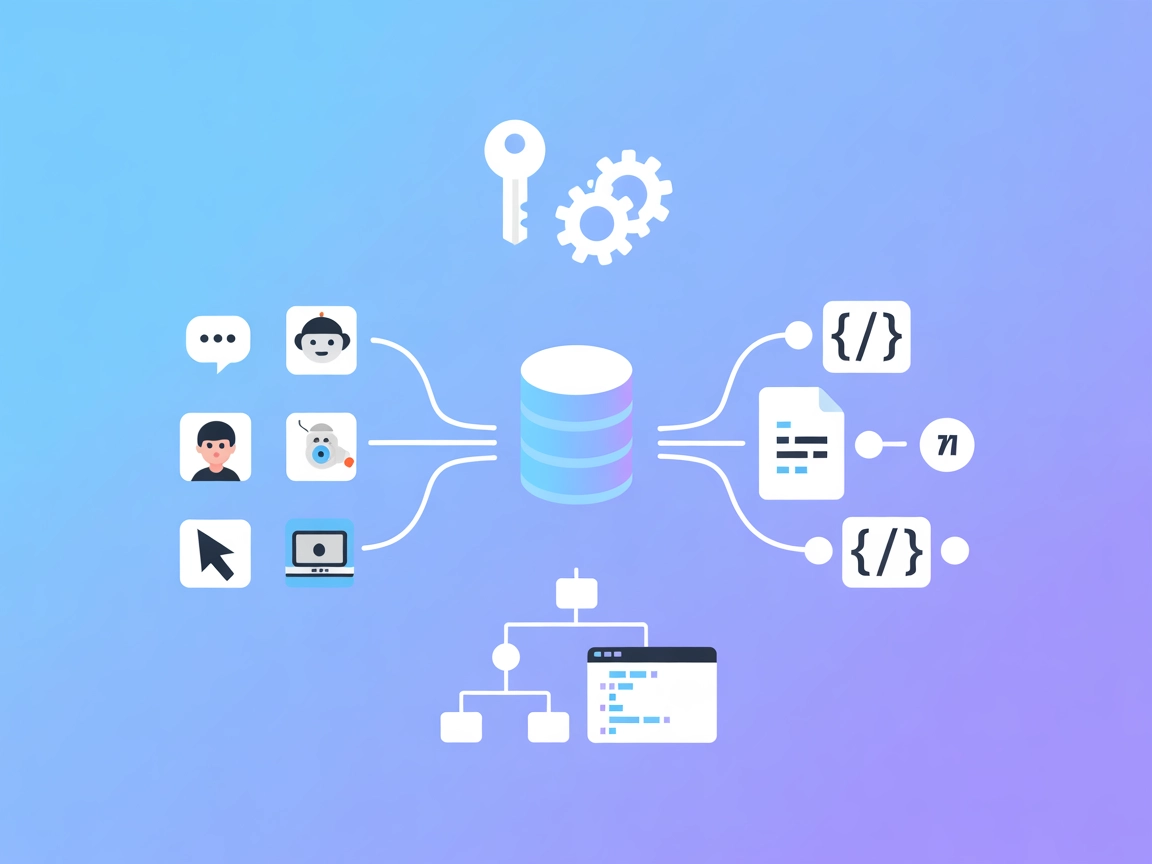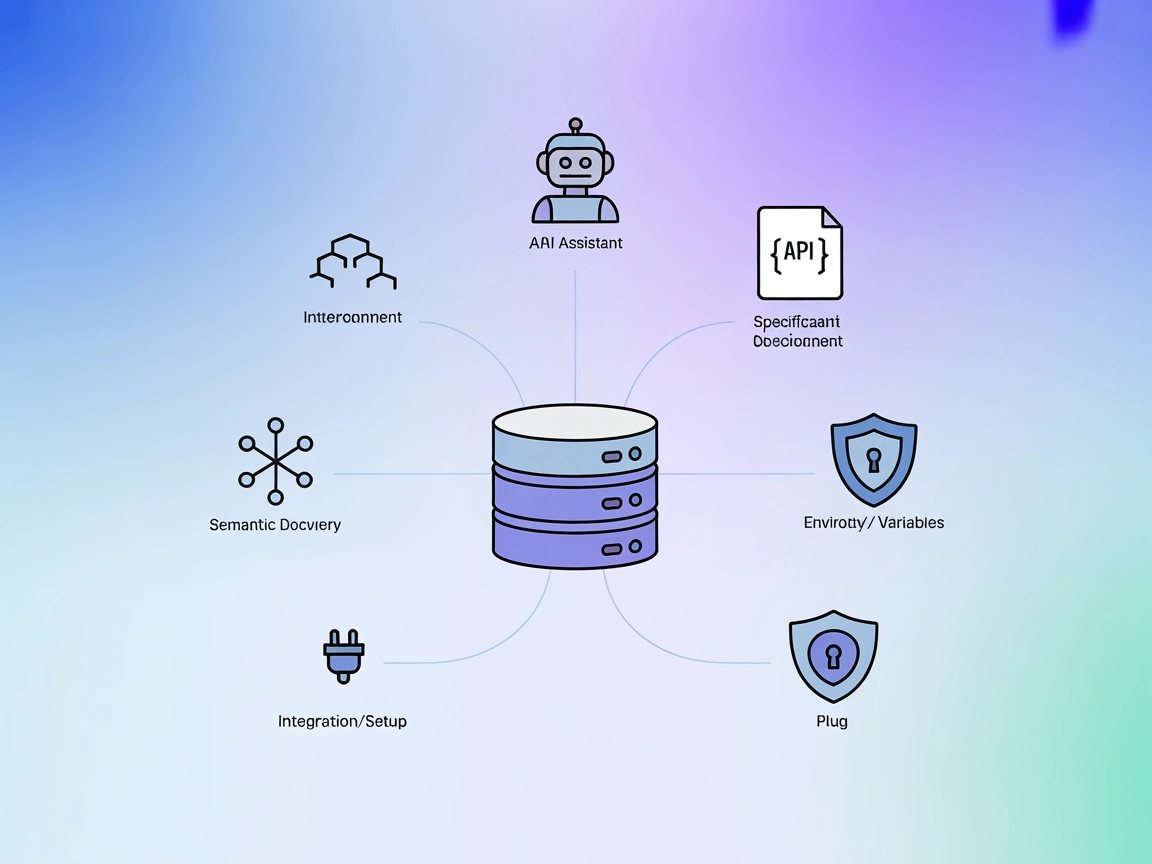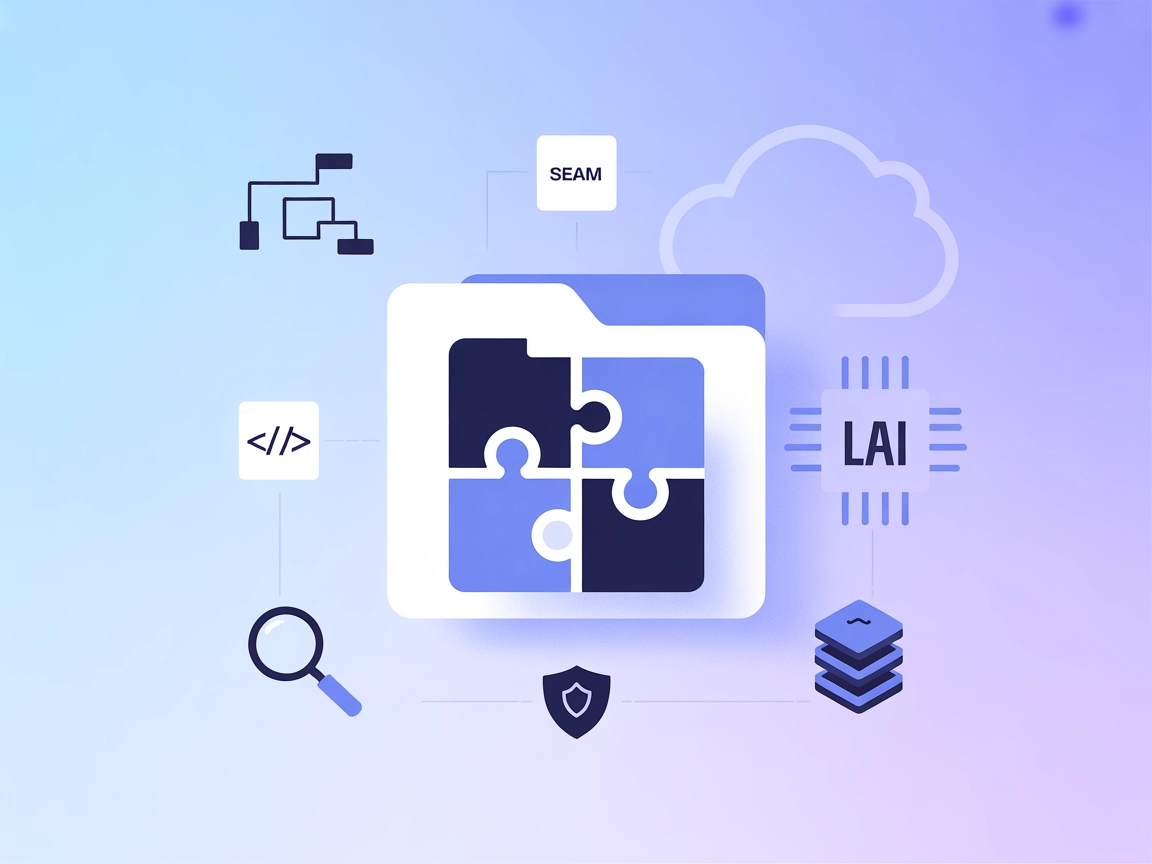
OpenAPI MCP Server
The OpenAPI MCP Server connects AI assistants with the ability to explore and understand OpenAPI specifications, offering detailed API context, summaries, and e...

Enable AI assistants to semantically discover, read, and interact with any OpenAPI-compatible API. Perfect for dynamic private API integration in FlowHunt.
FlowHunt provides an additional security layer between your internal systems and AI tools, giving you granular control over which tools are accessible from your MCP servers. MCP servers hosted in our infrastructure can be seamlessly integrated with FlowHunt's chatbot as well as popular AI platforms like ChatGPT, Claude, and various AI editors.
The “Any OpenAPI” MCP Server is a tool designed to connect AI assistants—such as Claude—with any external API that exposes an OpenAPI (Swagger) specification. It enables semantic search over large OpenAPI documents, intelligently chunking endpoints for rapid discovery and interaction. This allows AI clients to discover relevant API endpoints by natural language queries (e.g., “list products”), retrieve complete endpoint documentation instantly, and execute API requests directly from the server. The server is ideal for integrating private or large APIs into AI-powered workflows, streamlining operations like database queries or custom API integrations without requiring frequent manual updates.
No specific prompt templates are mentioned in the available documentation or code.
No explicit MCP resources are listed or described in the available documentation or code.
@any-openapi/mcp-server@latest entry to the mcpServers object.OPENAPI_JSON_DOCS_URL).Example JSON:
{
"mcpServers": {
"any-openapi": {
"command": "npx",
"args": ["@any-openapi/mcp-server@latest"],
"env": {
"OPENAPI_JSON_DOCS_URL": "https://yourapi.com/openapi.json"
}
}
}
}
Securing API Keys:
{
"env": {
"API_KEY": "${ANY_OPENAPI_API_KEY}"
},
"inputs": {
"apiKey": "${ANY_OPENAPI_API_KEY}"
}
}
Example JSON:
{
"mcpServers": {
"any-openapi": {
"command": "npx",
"args": ["@any-openapi/mcp-server@latest"],
"env": {
"OPENAPI_JSON_DOCS_URL": "https://yourapi.com/openapi.json"
}
}
}
}
@any-openapi/mcp-server@latest package.Example JSON:
{
"mcpServers": {
"any-openapi": {
"command": "npx",
"args": ["@any-openapi/mcp-server@latest"],
"env": {
"OPENAPI_JSON_DOCS_URL": "https://yourapi.com/openapi.json"
}
}
}
}
@any-openapi/mcp-server@latest.Example JSON:
{
"mcpServers": {
"any-openapi": {
"command": "npx",
"args": ["@any-openapi/mcp-server@latest"],
"env": {
"OPENAPI_JSON_DOCS_URL": "https://yourapi.com/openapi.json"
}
}
}
}
Securing API Keys:
Use environment variables as shown above to avoid exposing sensitive credentials.
Using MCP in FlowHunt
To integrate MCP servers into your FlowHunt workflow, start by adding the MCP component to your flow and connecting it to your AI agent:

Click on the MCP component to open the configuration panel. In the system MCP configuration section, insert your MCP server details using this JSON format:
{
"any-openapi": {
"transport": "streamable_http",
"url": "https://yourmcpserver.example/pathtothemcp/url"
}
}
Once configured, the AI agent can use this MCP as a tool with access to all its functions and capabilities. Remember to change “any-openapi” to the actual name of your MCP server and replace the URL with the correct endpoint.
| Section | Availability | Details/Notes |
|---|---|---|
| Overview | ✅ | |
| List of Prompts | ⛔ | None found |
| List of Resources | ⛔ | None found |
| List of Tools | ✅ | Two tools: discovery & execution |
| Securing API Keys | ✅ | Via environment variables |
| Sampling Support (less important in evaluation) | ⛔ | Not mentioned |
Roots support: Not specified in available documentation or code.
Based on the provided documentation and the above breakdown, this MCP server is focused, functional, and well-suited for API integration and dynamic endpoint discovery, but lacks explicit sample prompts/resources and documentation on sampling or roots. Its setup and security practices are clear and standard.
This MCP server is highly practical for developers needing to integrate large or private APIs with AI assistants, particularly Claude. Its utility is strong for semantic endpoint discovery and direct API execution, though more documentation and resource definition would be beneficial. Overall, it is a solid, focused server, but not a fully comprehensive example of all MCP features.
Rating: 7/10
| Has a LICENSE | ✅ (MIT) |
|---|---|
| Has at least one tool | ✅ |
| Number of Forks | 12 |
| Number of Stars | 52 |
It lets AI assistants like Claude connect to any external API exposing an OpenAPI (Swagger) specification. It enables smart, semantic endpoint discovery and direct API request execution, making private or large API integration seamless.
The server is designed for Claude but works with any AI client that supports MCP servers, including Windsurf, Cursor, and Cline.
It uses in-memory semantic search (FAISS with MiniLM-L3) to find relevant endpoints from OpenAPI documents based on natural language queries.
Yes. Always use environment variables for API keys and other sensitive data, as shown in the configuration examples.
Yes. Once a relevant endpoint is discovered, the server enables the AI to execute API requests, retrieving live data or performing actions via the API.
Integrating private APIs, automating workflows like product listing or user management, and rapidly discovering and using endpoints in large APIs.
Supercharge your AI workflows by connecting Claude or other assistants to any OpenAPI-based API. Experience seamless, secure, and dynamic API integrations!

The OpenAPI MCP Server connects AI assistants with the ability to explore and understand OpenAPI specifications, offering detailed API context, summaries, and e...

The OpenAPI Schema Explorer MCP Server enables efficient, structured access to OpenAPI/Swagger specifications as MCP Resources, bridging AI assistants and devel...

The OpenAPI Schema MCP Server exposes OpenAPI specifications to Large Language Models, enabling API exploration, schema search, code generation, and security re...
Cookie Consent
We use cookies to enhance your browsing experience and analyze our traffic. See our privacy policy.